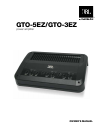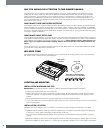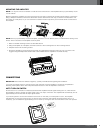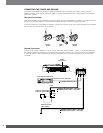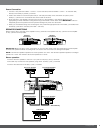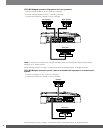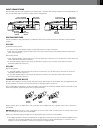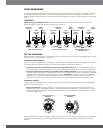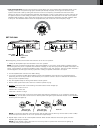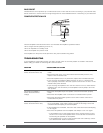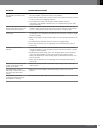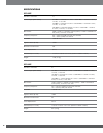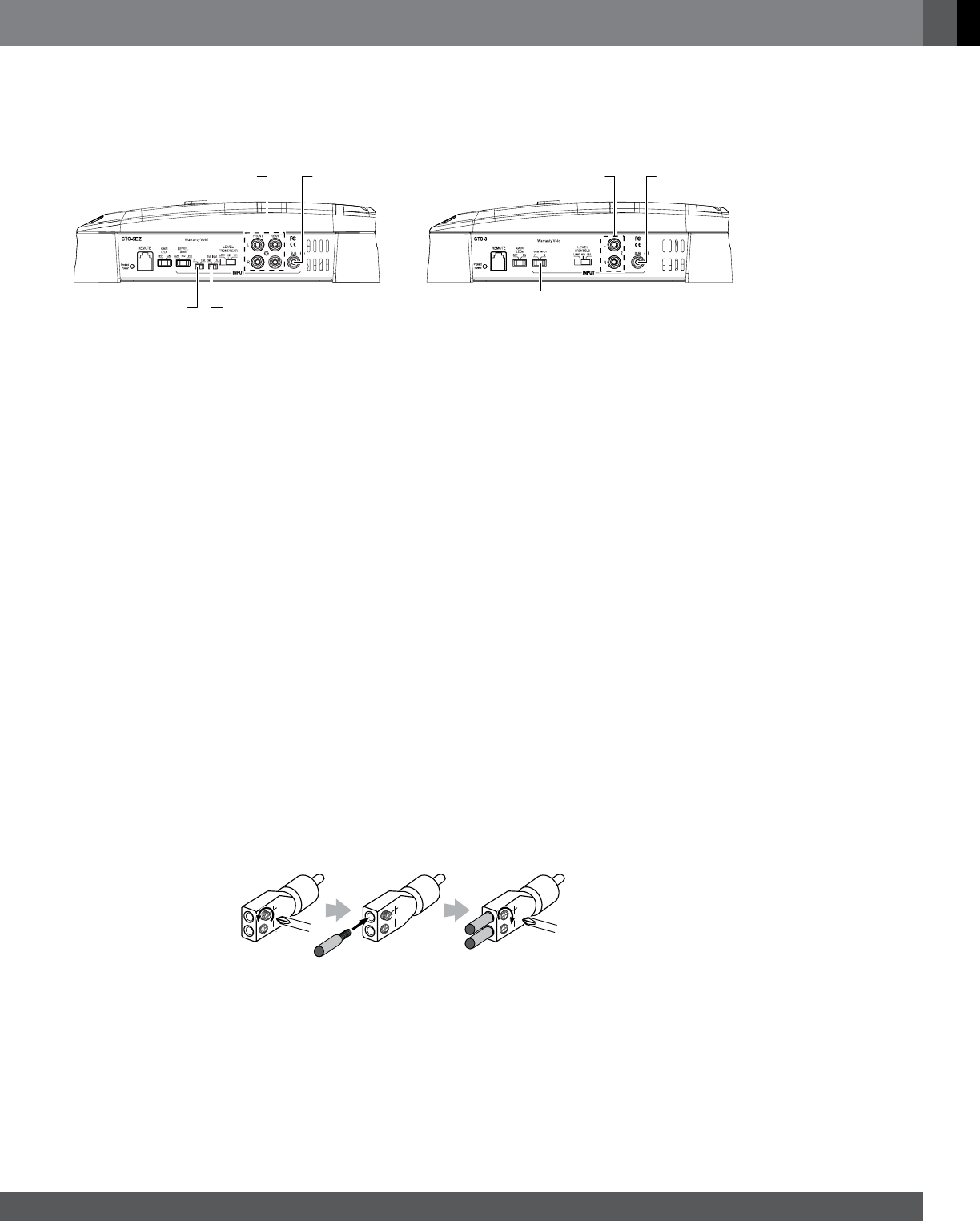
7
www.jbl.com
English
INPUT CONNECTIONS
The GTO-5EZ and GTO-3EZ amplifiers have multiple input connectors with routing switches that increase flexibility, so
you can use these amps in a variety of audio system configurations.
EZ
Front and Rear
Input Connectors
Front/Rear
Routing
Switch
Sub
Routing
Switch
Sub
Routing
Switch
GTO-3EZGTO-5EZ
Front Input
Connectors
Sub Input
Connector
Sub Input
Connector
ROUTING SWITCHES
The GTO amplifier routing switches let you determine which input connectors drive the amplifier’s various speaker
outputs:
GTO-5EZ
Front/Rear Routing switch:
• F: The front and rear speaker outputs are both fed by the Front Input connectors.
• F&R: The front speaker outputs are fed by the Front Input connectors; the rear speaker outputs are fed by the
Rear Input connectors.
Sub Routing switch:
• F&R: The Sub speaker output is fed by the Front and Rear Input connectors. (For use with source units that do not
have a dedicated subwoofer connector.)
• S: The Sub speaker output is fed only by the Sub Input connector. (For use with source units that have a
dedicated subwoofer connector.)
GTO-3EZ
Sub Routing switch:
• F: The Sub speaker output is fed by the Front Input connectors. (For use with source units that do not have a
dedicated subwoofer connector.)
• S: The Sub speaker output is fed only by the Sub Input connector. (For use with source units that have a
dedicated subwoofer connector.)
CONNECTING THE INPUTS
Use RCA audio cables to connect source units with preamp-level outputs to the amplifier; use the supplied bare wire-
to-RCA adapters to connect to source units that don’t have RCA output connectors.
Use a small Phillips screwdriver to loosen the adapter’s set screws and insert the speaker wires into the holes on the
back of the adapter. Tighten the set screws to secure the wires.
Loosen
Screw
Insert
Wire
Tighten
Screw
Always connect the (+) speaker wire to the (+) terminal on the adapter and the (–) speaker wire to the (–) terminal on
the speaker.
IMPORTANT: Make sure the (+) and (–) bare wires do not touch each other. Touching wires can cause a short circuit
that can damage the source unit or the amplifier.
When you’re finished, plug the adapter into the appropriate input connector on the amplifier.
• For bridged operation: Connect to either the left or right input connectors if you wish to feed the amplifier a mono
signal (such as the center channel from a processor that outputs a center channel signal), or connect to both
inputs if you want the amplifier to create a mono signal for a single speaker.



